2 more episodes, and 8 more to go for Princess Tutu! This week on Throwback Thursday Princess Tutu returns to form in the most unexpected of ways. Meanwhile Rue and Mytho get some much needed conflict and my OTP takes another step forward. So lets jump right into it!
Starting off we have episode 17, Crime and Punishment. It’s been a long time since I started an episode so poorly, and loved it so much by the end. You see, at the beginning, I couldn’t stand Femio. Everything from his VA to his over the top nature felt out of place and fit Princess Tutu poorly. You need look no further than his interpretive dance, a perfect representation of my problems with modern at, for proof. Yet by the end of this very same dance, his place in the episode and the story became clear. Effectively lamp-shading both Kraehe and Mytho and the current state of their characters. I thought this episode was effectively going to be filler, to be honest. Yet like Princess Tutu is wont to do, by the end Femio fit in perfectly. So without further ado, lets talk specifics.
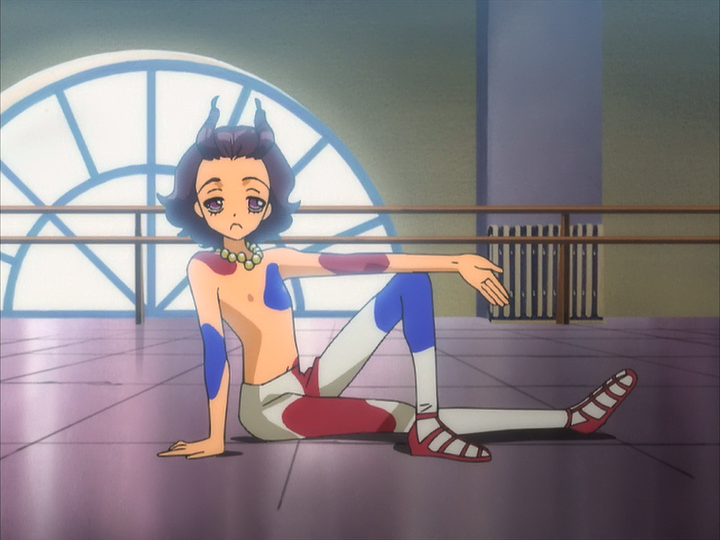
Of course as I said, Femio’s saving grave was his place contrasting with Mytho and Kraehe. While his flamboyant nature of proclamations of love were annoying, they work well for these two. As both of these characters have struggled with love, both in giving and receiving. Kraehe’s current big arc at the moment actually revolves around it, as we see with her relationship with her father. Constantly being put down and told no one could love her, yet here we have a character professing their love for everyone. Who manages to profess that same love both before and after Kraehe reveals her crow form and attempts to steal his heart. Simultaneously rejecting Kraehe, proving the Raven’s words, while also accepting her more than either the Raven or Mytho have. Femio’s love is vapid and lacking compared to the true article, yet it is more than anyone has offered Kraehe before.
Beyond that though, I just loved how the entire thing backfired for Kraehe. While it will no doubt be helpful in her overall development, the immediate aftermath is another blow to her self-worth. For just as Mytho said, she wasn’t able to get someone to love her as people love him. Kraehe wasn’t able to get Femio to give his heart to her, and he was the only character able to break out of it on his own. Not because of any special feat or ability, but because he is so arrogant and narcissistic that he doesn’t think he can love just one person. And so its the very shallow nature of his universal love that saves him from the Raven’s machinations. For all his jokes, silly poses and rose petals, at the end of the day Femio’s surface level rendition of a “Prince” are unsuited for “true love”.
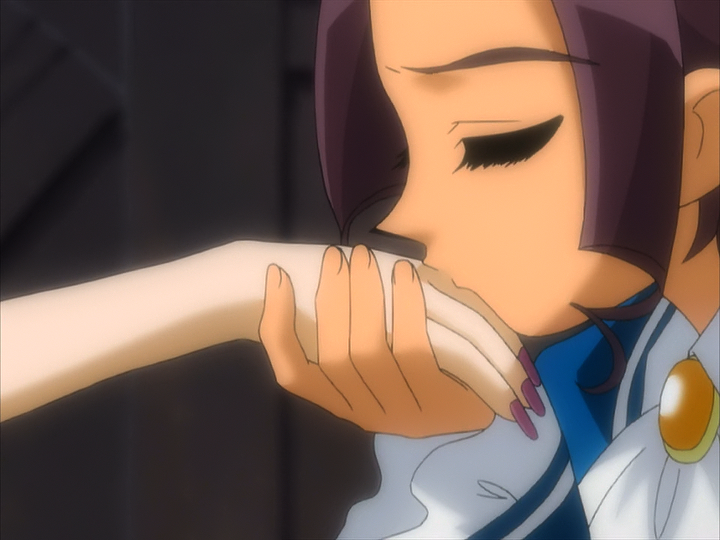
Speaking of Prince’s, we still need to talk about Mytho and Femio’s fantastic inversion Mytho. Femio’s almost inverted reflection of everything Mytho is, is what really sold me on him. As throughout the episode we hear everyone talking about Mytho, fawning over Mytho, everyone loves Mytho. Yet Mytho in his current state is unable to love them, or anyone, back. He has no control or say in his feelings, being literally mind controlled at this moment. Only able to break out for moments to mime a sorrowful “Love”, before collapsing. Yet the one who sparked this was not Ahiru or Fakir or Rue, but rather Femio. This wannabe arch-typical “Prince” who says he “Loves all and is loved by all”. It is through his words, “there is a feeling that gets across even without words”, that strike true, even if Femio himself is unable to truly embody them.
Alas, I don’t really have the words to describe the intricacies of it all myself. So instead, I want to recommend those interested to read this article over at “Wrong Every Time“. They were able to put it into words much better than my own. Meanwhile, I want to touch on one last bit I enjoyed this week, Ahiru and Fakir. For those paying attention, you know I think Ahiru and Fakir have a much better relationship than anyone else in the show. So while their involvement in the overall plot this weak was low, what we did get I enjoyed. From meeting up surrounded by bulls to their discussion of Mytho’s true self in the library. And to see it all capped off with Ahiru miming “Love” to Fakir at the end, in whatever context, is just more proof Princess Tutu knows what the best ship is. Can’t wait.
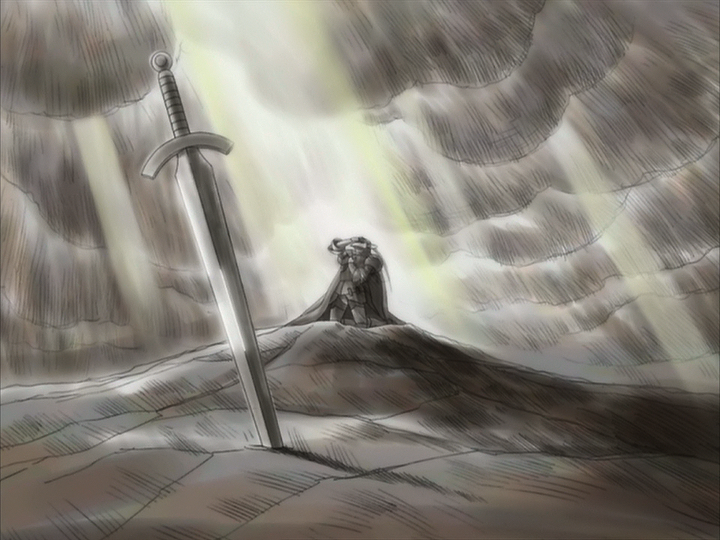
Moving on we come to Episode 18, Wandering Knight, a more Fakir centered episode. Starting off, the whole drama club and their play was kinda silly as a setup. It wasn’t bad, and if anything it shows how far Fakir and Ahiru’s relationship has come that he would do it at all. But it still felt oddly out of place for him, as he never seemed the type to do this kind of thing before. That said, after episode 17, the bar for what can be considered “silly” has shot up, so if anything this was downright serious. All that aside, it was nice to see Ahiru defend Fakir’s reputation and go out of her way to try and support him. Doing what she can to try and reintegrate and defend him to the school community.
For the play itself, and the book it originated from, Princess Tutu is doing a lot of interesting things. The most obvious of course is the direct parallel Princess Tutu makes to Fakir. Giving him a play about a useless knight, calling on his own insecurities about his role in everything. Eventually having him resolving to to die if it means restoring Mytho’s heart, falling back into that original mindset, yada yada. This is all pretty obvious and I would be surprised if anyone really missed this, considering how on the nose it is. We are well acquainted with Fakir’s fear of his seemingly foretold death, and Drosselmeyer’s ominous warnings about obeying your place in the story. What is more interesting though is how this book plays into this odd background plot going on.
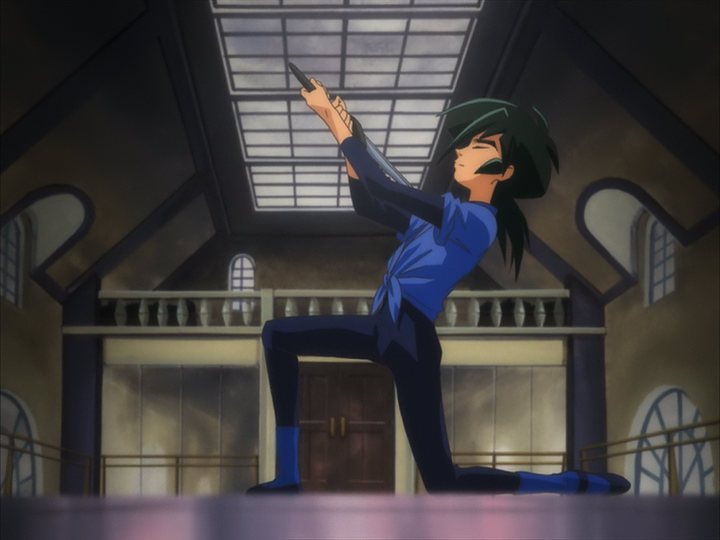
Throughout both of these episodes, and multiple before it, we are constantly finding Fakir in the library. He always seems to have a book in hand, as if searching for something. Whether it be when Kraehe confronts him, at his home, or at school, Fakir has become rather studious. It is here though that we learn that all of the endings have apparently been ripped out, that none of the books end. Why? And what does this mean for the story of the Wandering Knight that was found this episode, seemingly complete, that Fakir takes? We have seen for awhile now that stories seem to come to life as they are discovered/become relevant. So if the stories themselves are coming true, would changing the ending of the stories effect them in the real world? Considering Drosselmeyer’s treatment of the entire show as his own story, it’s not that far-fetched.
Of a similar note to this, I have also noticed an as-of-yet unnamed reoccurring character. As every time Fakir is in the Library, or even just walking around the school, the same student is always there… watching. We have no name for him yet, so for now I am just going to call him Glasses. Suffice to say, this kid makes it seem like something more is going on. Whether he is a plant for the Raven, or involved with Drosselmeyer in some way, I don’t know. But I can’t shake the feeling that he has something to do with the missing endings to all the books. Part of this is just association, he is always there when books are involved, so it makes sense. But the other part his is seeming focus on Fakir, a character with a foretold tragic ending. Regardless, I am looking forward to his introduction.
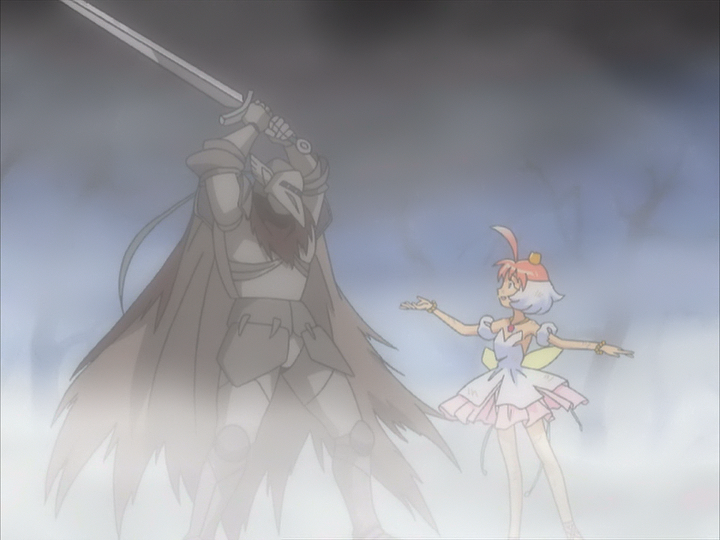
Finally, I can’t not talk about Fakir, Ahiru and the ending of this episode. So much happened in such a short span of time, its actually difficult to figure out where it will go. First up, Ahiru’s necklace was cut. Is it broken for good, do we just need a new chain and she can put it on? Or is she stuck as a Duck for awhile until they manage to fix it? Considering how Drosselmeyer called them all useless, I am pretty concerned about all that. At that same time though, in a callback to the first cour, we see Fakir lay down his sword. It was a constant theme of his, choosing to fight vs finding a new path, in the first cour. Here we see him abandoning the sword to help Ahiru after she protected him. Is this him choosing her over Mytho? Or am I reaching?
Considering how the Wandering Knights story ties into Fakir, I don’t believe I am though. In the original story, mirroring Fakir’s character, the Knight is asked to stop by his wife. Except instead of doing so, he cuts her down and continues on his mission. This mirrors how Fakir treated Ahiru early on in Princess Tutu, focused more on his duty than what was “right”. Yet in this ending we see Tutu convince the Knight to to stop, in a similar plea to his wife. And so just as the Knight drops his sword and Tutu get’s the heart shard, Fakir drops his sword and moves to protect Ahiru. There are no doubt better ways to frame and present these facts. But in my mind, its a clear change of focus for Fakir. Moving from fighting to protecting, I am looking forward to where Princess Tutu takes him from here.

So, all in all, how were these two episodes of Princess Tutu? In a word, they were surprising. Femio was deceptively silly and irrelevant at the start, only to become a linchpin in Mytho and Kraehe’s stories. Meanwhile Fakir returns to school only to have his own mid-story crisis and abandon his sword. So much happened that I can’t call these episodes anything less than a return to form for Princess Tutu. There were still some pacing issues regarding the split episodes because of how they aired. But these two felt much more like complete products, split in two, rather than two episodes merged together. They had a clear through line between them reignited my love for Princess Tutu. With only 8 episodes left, and plenty of ground left to cover, I am nothing short of excited and I hope you are to.


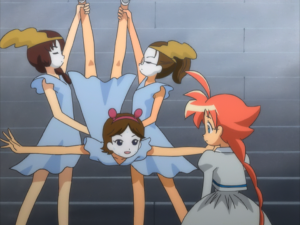
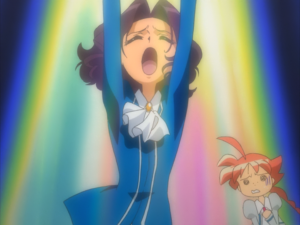
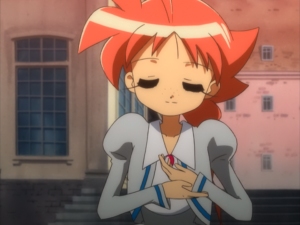
Yeah, I hated Femio too. Not helping matters is he’s voiced by Vic Mignogna in the English dub.
Oh seriously? Eyugh. The VA is just not there for him. However narratively poignant his place, the dude is just kinda… annoying.